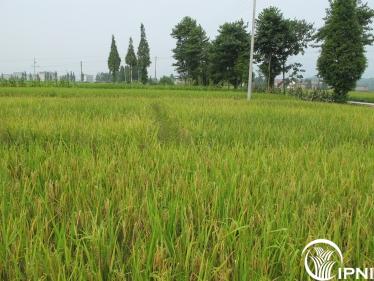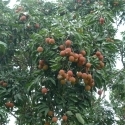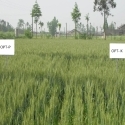08 Oct 2012
Soil potassium reserves decide application rates of fertilizer potassium
Nutrient management
 Soil potassium reserves and fertilizer rates on rice
Soil potassium reserves and fertilizer rates on rice
Soil potassium reserves decide application rates of fertilizer potassium. In a potassium rich soil in the hilly region of Sichuan Basin, a long-term field experiment initiated in 1982 was conducted by the Soil and Fertilizer Institute, Sichuan Academy of Agricultural Sciences to test soil K supply power and duration in intensive, irrigated rice -wheat systems with crop residue removal from the field. Results showed that soil native K can supply healthy crop growth and crop yields equivalent to the treatment of NPK for up to 15 years. The minus K treatment achieved rice yields 2.8%-9.9% lower and wheat yields 1.3%-12.4% lower than the NPK treatment in the following 16 years. While in another long-term field experiment conducted in a potassium deficient soil in intensive, irrigated rice -wheat systems with crop residue removal from the field located in Chengdu Plain of Sichuan province , omission of K in the fertilizer program for one season reduced wheat yield by 10.3% and rice yield by 8.7% and continued omission of K reduced wheat yield by 49% and rice yield by over 15% compared to the NPK treatment in the second year.




